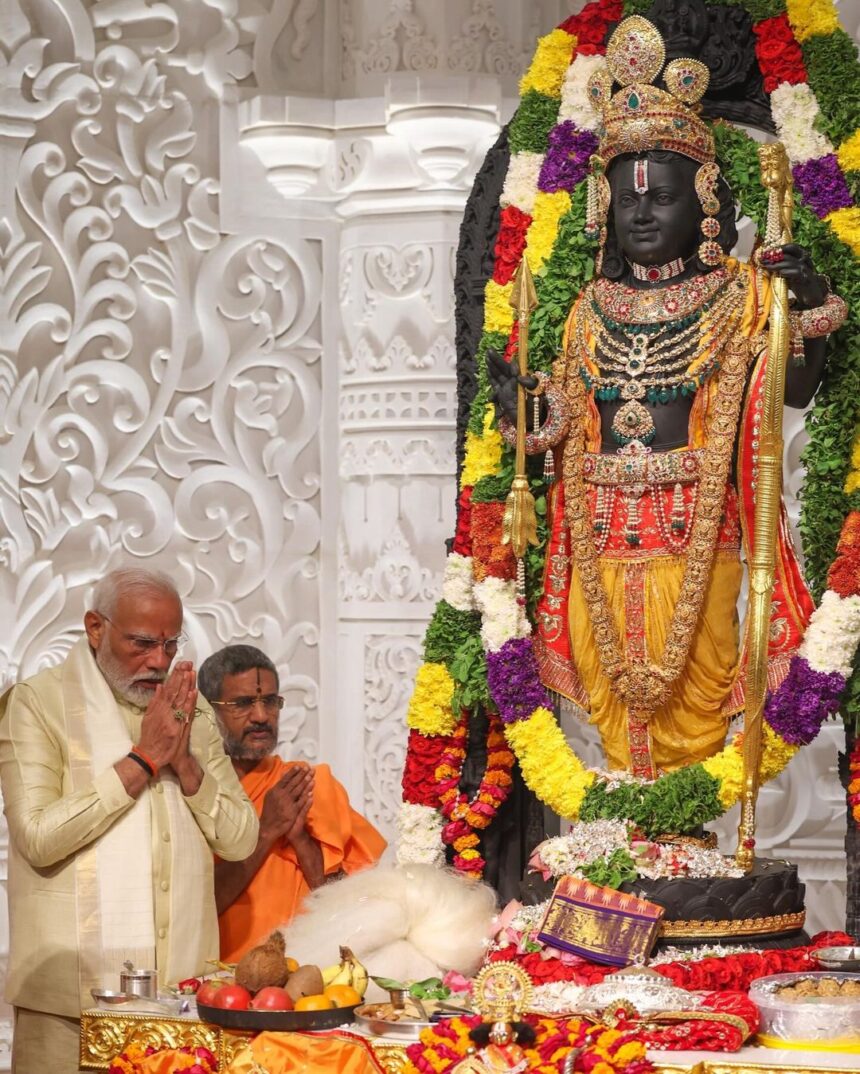The cultural landscape of India witnessed a historic moment on January 22, 2024, with the grand inauguration of the Ram Mandir in Ayodhya. The ceremony was led by none other than India’s Prime Minister Narendra Modi, who is gearing up for an unprecedented third term in the forthcoming national elections.
The Ram Mandir, constructed at the location of the 16th-century Babri Masjid, symbolizes a fulfilled promise by Modi’s Bharatiya Janata Party (BJP). The mosque was brought down by Hindu activists in 1992, leading to nationwide unrest. In 2019, the Supreme Court of India gave the green light for Hindus to build a temple at the disputed site.
The ‘Pran Pratishtha’ ceremony, a sacred ritual marking the installation of Lord Ram’s idol, was a key highlight of the event. Lord Ram is one of the most venerated deities in Hinduism. The ceremony saw participation from over 7,000 attendees, including international dignitaries, and was broadcast to millions.
While the inauguration of the Ram Mandir is a momentous occasion, it’s important to acknowledge that it has elicited a spectrum of reactions from different communities. For some, it has brought up memories of past events. As India continues to celebrate its rich cultural diversity, the hope is for all communities to move forward together, fostering an environment of mutual respect and understanding.
Despite the differing viewpoints, the inauguration of the Ram Mandir is undeniably a significant chapter in India’s cultural narrative. It signifies the end of a journey that has spanned centuries, punctuated by numerous legal and political milestones.
As India commemorates this historic occasion, the world watches with keen interest. The inauguration of the Ram Mandir not only heralds a new phase in India’s cultural narrative but also sets the tone for the impending national elections.








